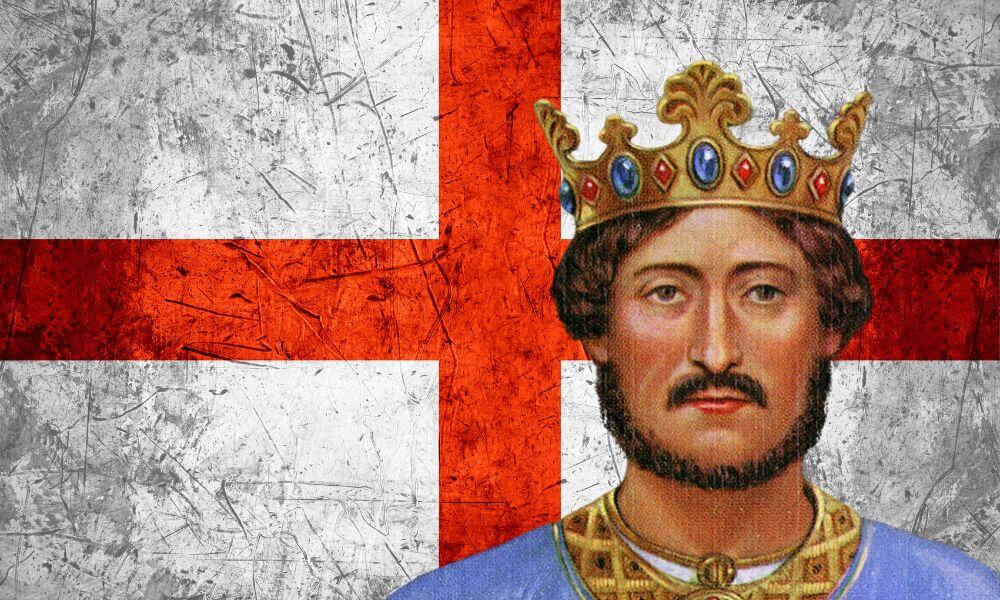Richard the Lionheart would have spoken his native French, which we today would broadly categorize as Old French. He would also have spoken Occitan, or Old Occitan, also known as Old Provençal, spoken in various regions throughout France. Being King, he would also have been able to read Latin for books and correspondence.
Richard I, known more commonly by his epithet Richard the Lionheart, remains one of the most iconic kings of England in the minds of people today and in popular culture.
Like many “English” kings of this period, though, he was not really English in any real sense.
Let’s find out more.

What was Richard the Lionheart’s native language?
Richard I’s native language was French, specifically Old French. French was naturally a language of many dialects at the time, and there were many different forms of French spoken in France during the 12th Century.
They were virtually all, though, mutually intelligible, and while there would have been significant dialectal variation, they are all considered the same language.
So, in that sense, the simplest answer to what was Richard I’s native language is that it was Old French.
Old French, again, is a historical division of the language, but broadly speaking we can say it was the language spoken in most of France between around the 8th and the 14th Centuries.
It was a linkage of Romance dialects, extremely diverse despite their mutual intelligibility.
Richard himself was born in England, in Oxford, though he would spend the vast majority of his life in France.
The Angevin kings of England, the ruling dynasty at this time, ruled over vast swathes of France through conquest and alliances of marriage.
He was educated in England until around eight years old, but this does not mean he was educated in English.
Virtually all of the English aristocracy at this time were French, and spoke French.
He composed poetry and wrote in both French and Limousin, a dialect of the Occitan language.
Occitan was a language spoken in various regions of France such as Aquitaine and Gascony, and his mother, Eleanor, was from Aquitaine.
So, Richard I’s native language was French by any definition of the word. He may have been born in England, but he was English really not in any useful sense.
Though the English certainly think of him as an iconic English king, like all the kings of this time, he was a Frenchman through and through.
Was Richard the Lionheart English or French?
It’s worth dwelling on this question for a moment.
It’s important to understand the makeup of English aristocracy at this time.
Before the Battle of Hastings in 1066, English aristocracy was entirely Anglo-Saxon.
England was a kingdom, but powerful earls ruled with effectively more power than the king would.
When William the Conqueror, a Norman, invaded in 1066, the royal house became far more powerful.
Not only that, but the Anglo-Saxon nobility was all but completely removed from positions of power.
They were not necessarily all killed, but they had their lands and holdings taken and given to French nobles who had supported William.
By the time of Richard the Lionheart, things had not really changed.
Henry II, Richard’s father, was born in Maine, at Le Mans, in 1133.
He was the child of Empress Matilda and Geoffrey Plantagenet, the Count of Anjou.
Richard I would also inherit the title of Count of Anjou, and thus this line of kings are called Angevin.
So, even well over a century after William the Conqueror had taken the throne, the English aristocracy was only English in the sense of where it ruled—not by its descent.
So, Richard the Lionheart was French, but he happened to be the king of England.
Why did Richard the Lionheart not speak English?
Richard simply had no real reason to speak English.
It’s said he picked up some as a child being raised in Oxford, but you must remember that at this time the English aristocracy were not speaking English but French.
Naturally, Richard had virtually no interaction with English peasantry, who would have been the only people speaking English at the time.
Most of Richard’s career took place outside of England, too.
Much of his conquests and campaigns took place in France against his French neighbours, and he spent most of his time as king of England either crusading or campaigning in France.
What other languages did Richard the Lionheart speak?
Old French was Richard I’s main language, then. He also, as I said, was proficient in Old Occitan, and may have been more comfortable at times talking in this language.
It was certainly widely used in areas he spent a lot of time in, and he would have felt an ancestral relationship to the language.
He would also have been able to read and write in Latin.
This was a given for royalty at the time across Europe. He would have received extensive education as a child, and all correspondence would have been written in Latin, so it was important he be able to read it without help.
So, though one of the most iconic kings of England, Richard the Lionheart was in no sense English.
He spent perhaps as little as six months in England during his reign, and never bothered to learn to speak English.
French aristocracy dominated the English political scene for centuries after the Norman Conquest, and so we see a long line of kings who were not English but French.

